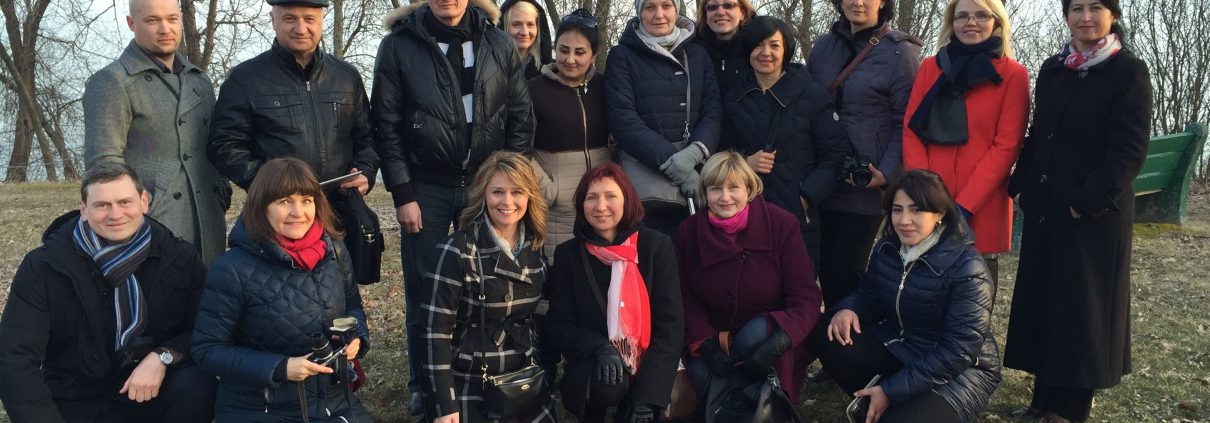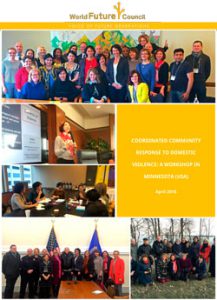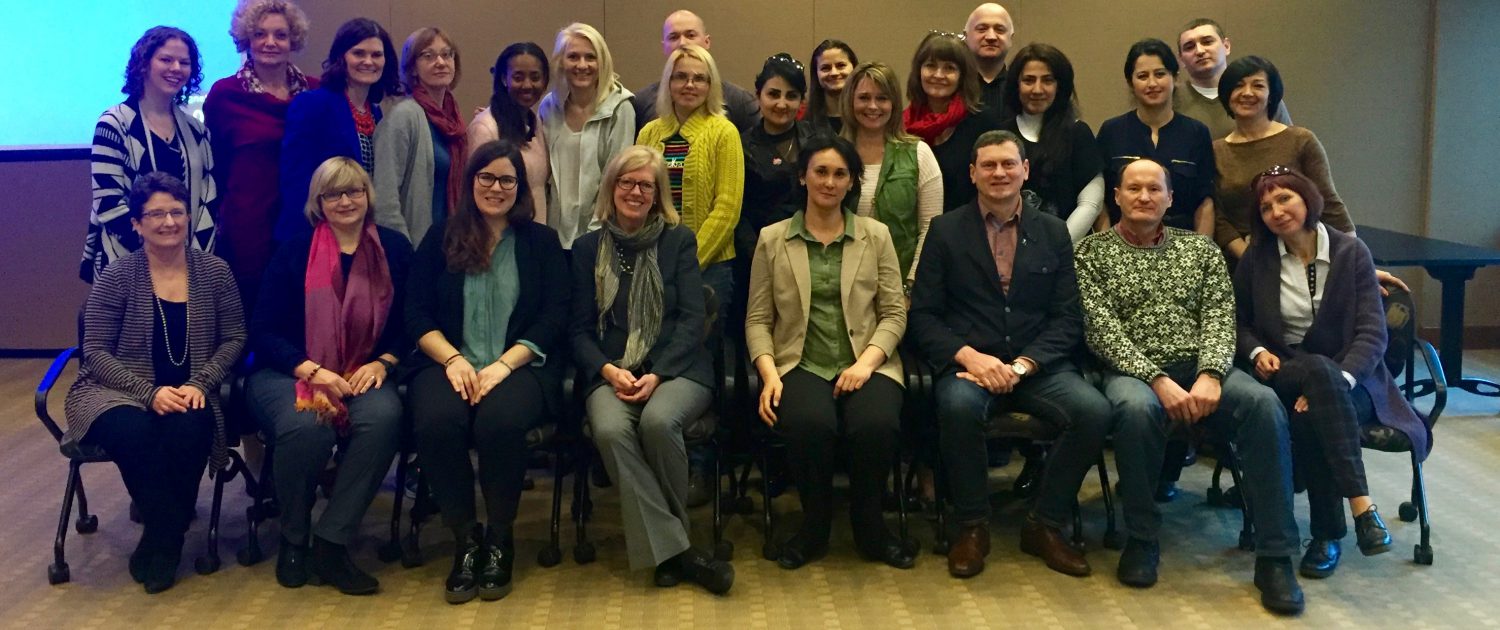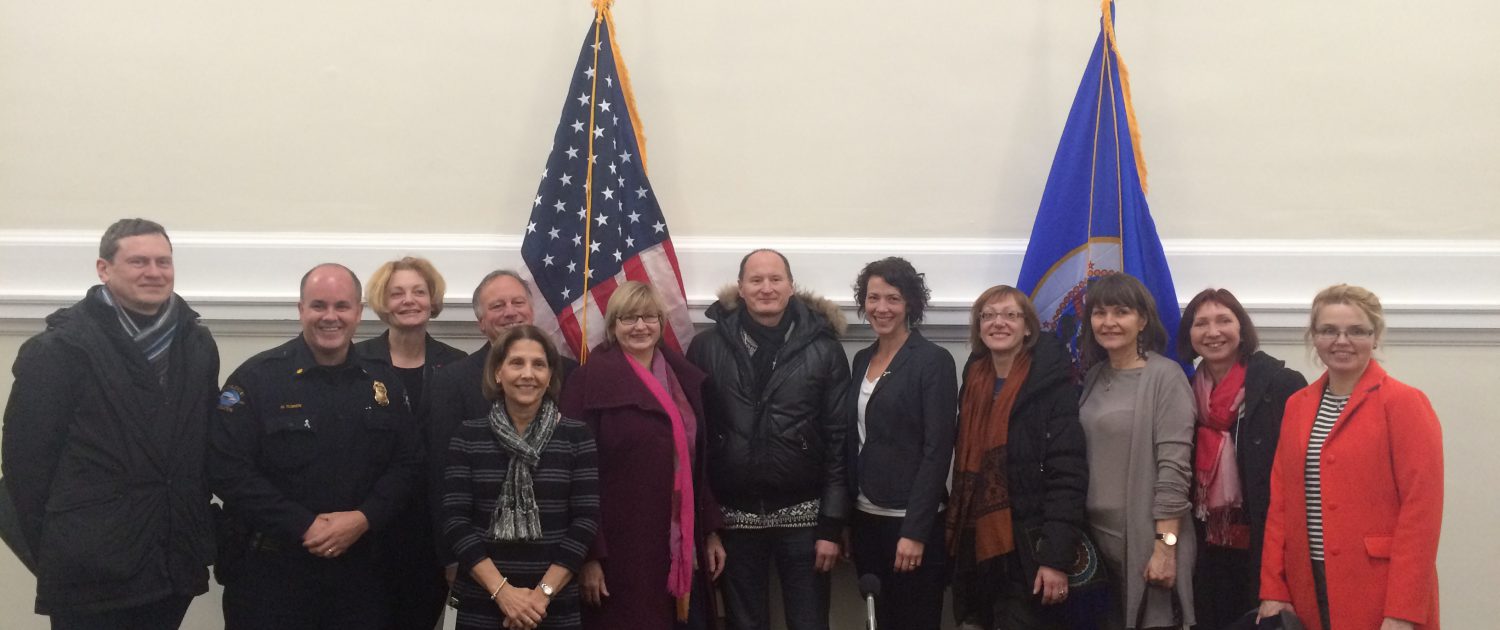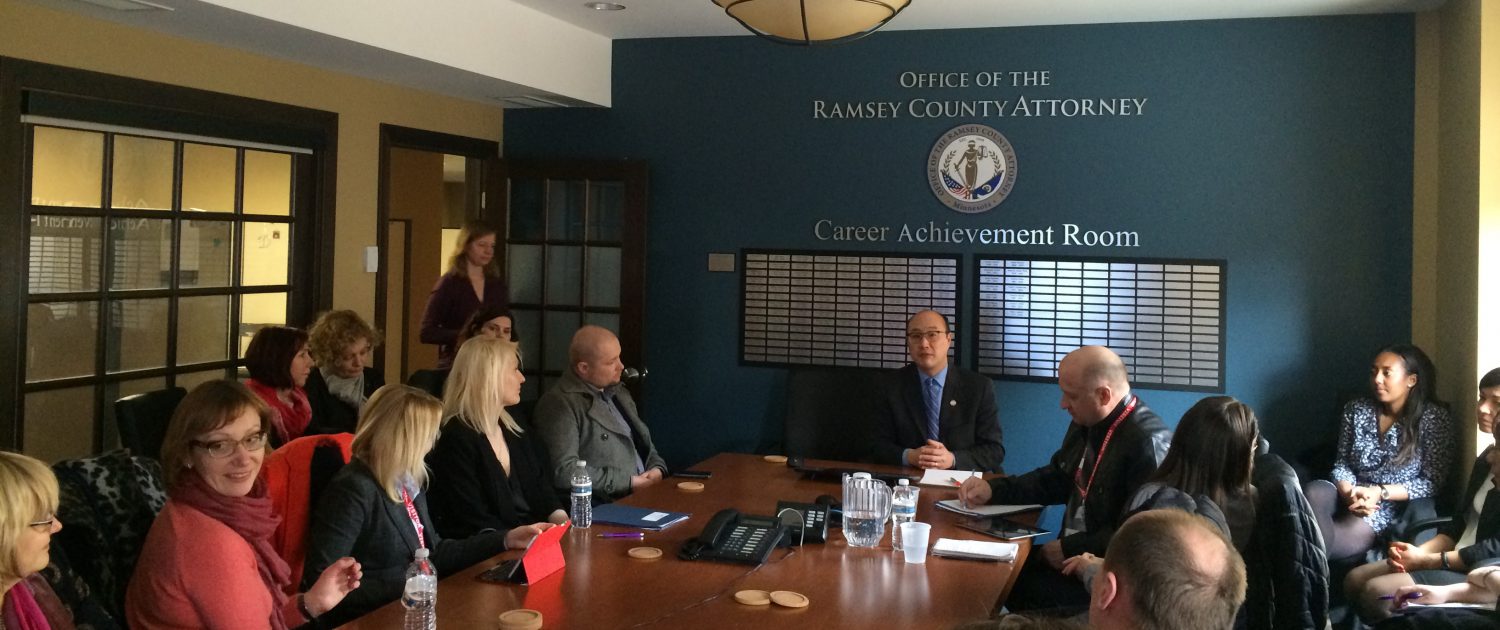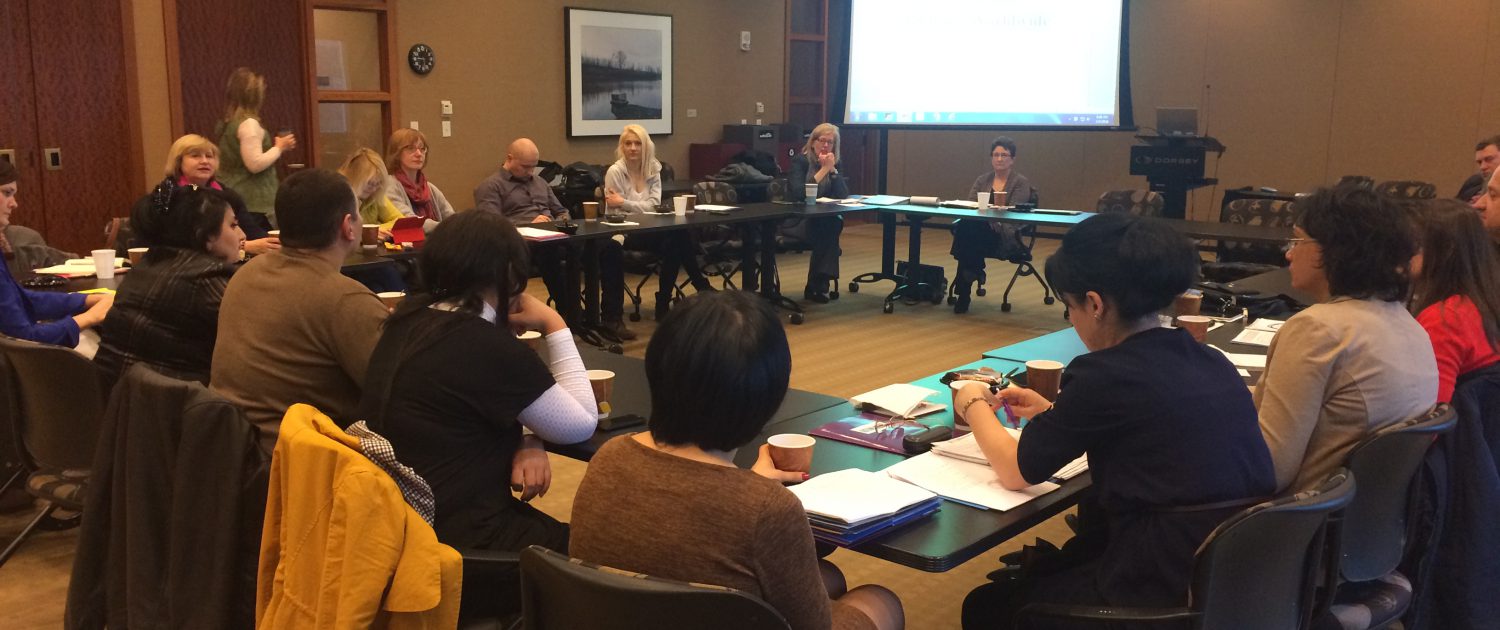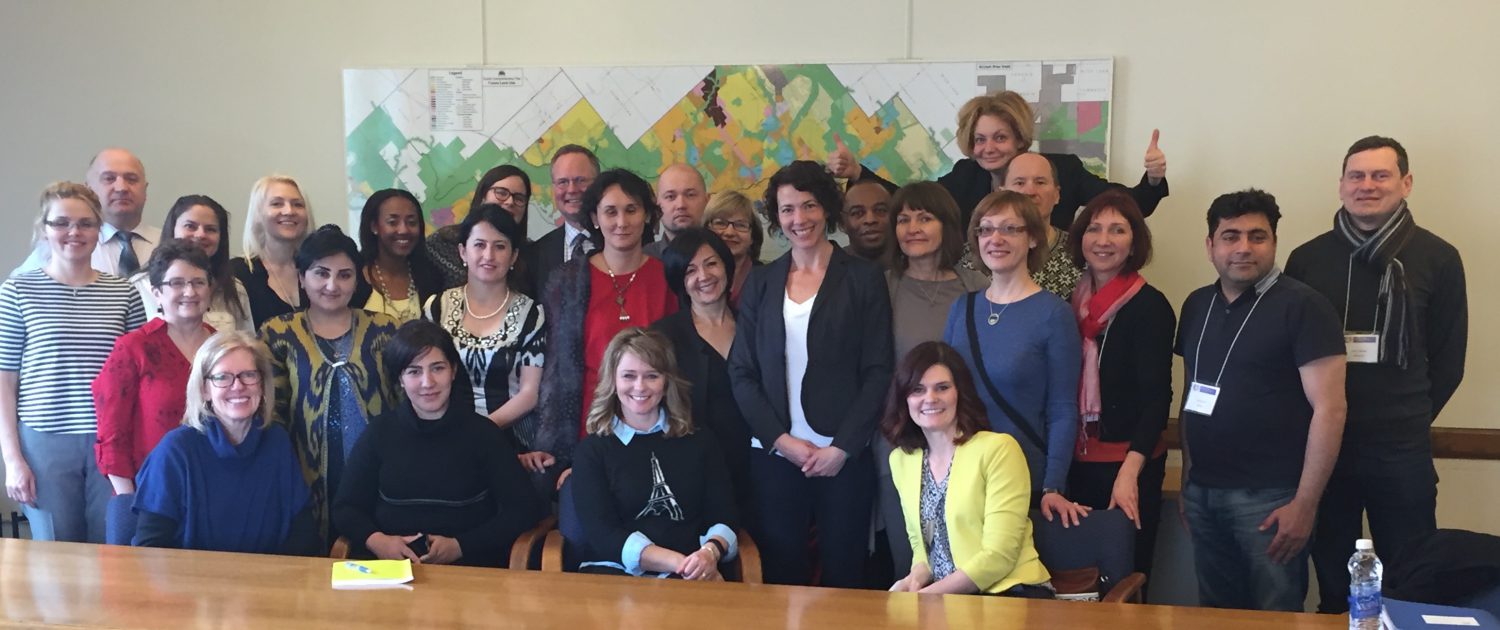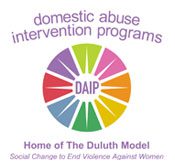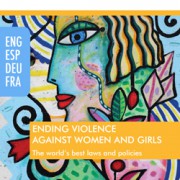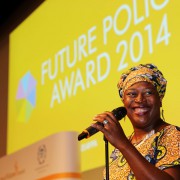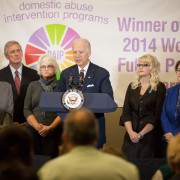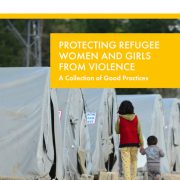Coordinated Community Response to Domestic Violence: a workshop in Minnesota (USA)
Violence against women and girls is a global challenge that requires effective, comprehensive and immediate policy solutions. Recent data shows that at least 30% of women worldwide have suffered physical and/or sexual intimate partner violence, confirming the urgency of the matter on a global scale. Fortunately, in some parts of the world, local initiatives and frameworks have already proven highly successful in tackling gender-based and domestic violence, which can serve as examples to the global community.
The “Coordinated Community Response (CCR) to Domestic Violence” implemented in Minnesota (USA) is one of those initiatives. Also known as the “Duluth Model”, the method has been successfully protecting women from domestic violence for more than 30 years. For this, it was awarded the 2014 Future Policy Award as the world’s best policy addressing domestic violence. In April 2016, our team travelled to Minnesota, US, to facilitate a workshop that aimed to spread this comprehensive policy to other communities.
The “Coordinated Community Response (CCR) to Domestic Violence” workshop brought together advocates, law enforcement officers, legal professionals and policy-makers from six different countries (Kazakhstan, Latvia, Lithuania, Pakistan, Tajikistan, and Trinidad & Tobago) to explore and witness first-hand the key principles of CCR as it is being implemented in Duluth (Minnesota, USA). This method, also referred to as the “Duluth Model”, promotes cooperation of all relevant actors, such as police and probation officers, prosecutors, and NGO advocates, working to prevent and combat domestic violence. This coordination effort proves as a highly effective approach for the implementation of domestic violence laws and focuses on victims’ safety and offender accountability.
The workshop provided an extraordinary opportunity for participants to learn the techniques of CCR from its designers/founders/initiators – and in the community that has most successfully implemented it – and develop an understanding and framework from which to respond to domestic violence in their own communities.
The World Future Council (WFC) was a funding partner of this nine-day workshop, planned and hosted by Global Rights for Women (GRW), a Twin Cities based non-profit, and presented in partnership with Domestic Abuse Intervention Programs (DAIP) out of Duluth, Minnesota. The workshop took place from 28 March to 5 April 2016.
Workshop details
- 18 participants from six different countries (Kazakhstan, Latvia, Lithuania, Pakistan, Tajikistan, and Trinidad & Tobago)
- 68 hours of training, convening, observing and peer-to-peer exchange over 9 days
- Three days of intensive training by the staff at the Duluth Domestic Abuse Intervention Programs (DAIP) in Duluth (Minnesota) and four days of training by Global Rights for Women’s legal experts in Minneapolis (Minnesota).
- Observation opportunities: participants visited a 911 emergency communications centre, shadowed police officers responding to calls, attended domestic violence court hearings, met with prosecutors and probation officers, and observed men’s nonviolence group meetings.
- The study tour also included meetings with parliamentarians, representatives from local authorities, law enforcement entities, judges and prosecutors, service providers and civil society organizations.
Next steps
The World Future Council will continue to work with our partners to facilitate the transfer of knowledge between policymakers and their NGO counterparts and to support them in introducing the model in their communities.
Project partners

GRW is a non-governmental organization that envisions a world where women’s human rights to equality and freedom from violence are fully realized.
Author
Marta Sánchez Dionis, Policy Officer, Ending Violence Against Women and Girls, World Future Council

